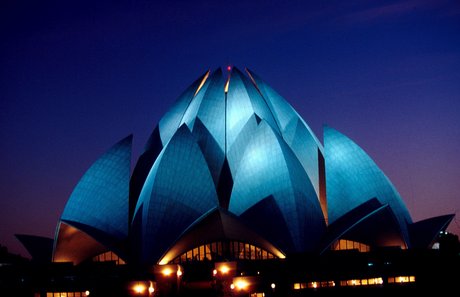.
The following two articles highlight the central importance of clean water and sanitation for particularly health and social economy (eye-opening excerpts from them are included farther down):
Under the definition for the word 'sanitation' in the dictionary we find "...the preservation of health; the use of sanitary measures; hygiene."
With regard to health and purity, the Bahá'í writings state:
As seen here, cleanliness has become a matter of religious duty to the believer. And
what motivation could be greater than this! As a matter of fact, it has been the case in all the religions of God. 'Abdu'l-Bahá says:
“External cleanliness, although it is but a physical thing, has great influence upon spirituality. … The fact of having a pure and spotless body exercises an influence upon the spirit of man.” (3)
Sanitation may be an issue to us on an individual level, but we should never lose sight of it as a social concern as well, which must be included as an inseparable aspect of religious and practical training, starting from earliest childhood. The benefits accruing from such simple measures can be easily imagined, not but least after reading the following from these articles:
DEVELOPMENT: 2.6 Billion Wait in Line for Toilets
"every dollar invested in people gaining access to water and sanitation returns six dollars in health, livelihood and educational benefits."
"Lack of safe water and adequate sanitation is the world's single largest cause of illness," it says, and "can spread such diseases as diarrhoea, cholera, dysentery, typhoid, hepatitis, polio, trachoma and tapeworms -- many of which can be fatal to people in the developing world."
...
"Urban centres in developing countries have grown rapidly without adequate infrastructure planning, resulting in million of immigrants who have little access to safe sanitation or water supplies. This puts the entire population at risk, causing serious environmental damage."
Around the world, he said, "about two out of every five of our fellow human beings lack access to sanitation services... This is simply unacceptable."
http://www.ipsnews.net/news.asp?idnews=38915
DEVELOPMENT: Water as a Right and Key to Social Stability
The United Nations says more than one billion people do not have access to safe drinking water worldwide, while more than two billion have no access to proper sanitation facilities.
...
Addressing the 17th annual World Water Week in the Swedish capital of Stockholm, Tibaijuka told a meeting of more than 2,000 water professionals, technicians, scientists and policy makers, that water is going to be the dominant world issue far into the current century.
"The supply of water may threaten the social stability of the world," she warned.
...
A study by the Manila-based Asian Development Bank (ADB) released here says a minimum investment of 8.0 billion dollars annually would assure that every country in that region could halve the proportion of people without access to water supply and improved sanitation.
Arjun Thapan, the author of the study, says that once that target is reached, the 8.0 billion dollar annual investment will yield a 54 billion dollar annual return.
"It is the height of economic irrationality to not invest in these vital services," he said.
The report, titled "Asia Water Watch 2015", stresses that the impact of this resource is so diffuse that every dollar invested in people gaining access to water and sanitation returns six dollars in health, livelihood and educational benefits.
http://www.ipsnews.net/news.asp?idnews=38898
Another article from 2003 on this issue may be found here.
Notes:
(1) The Báb, Selections... (SWB) p. 80
(2) ‘Abdu’l-Bahá, Selections From the Writings of ‘Abdu’l-Bahá, p. 147
(3) ‘Abdu’l-Bahá, cited in Bahá’u’lláh and the New Era, p. 104

